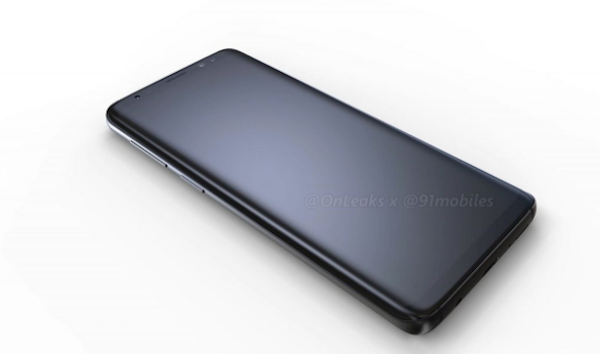Flagship smartphones getting more and more costly is just a fact of life these days. Samsung’s Galaxy Note 8 arguably started things off when it launched last year at a price point of around $950 in the US, and Apple followed suit with the iPhone X, starting at $999.
With Samsung’s Galaxy S8 and Galaxy S8+ having cost around £689 (equivalent to $966 in the US) when launched around this time last year, expectations were already high that the Galaxy S9 and Galaxy S9+ would see price hikes of around £100 each in the UK following a report which said that $100 price increase was likely in the US. Now, thankfully, that appears to not be the case, at least in the UK, although the prices will still increase regardless.

According to a new report, citing an unnamed source, the Galaxy S9 and Galaxy S9+ will actually see price increases of £50 in the UK, meaning the Galaxy S9 will launch at £739 or $1,037, depending on the exchange rate or more accurately, whatever Samsung decides the exchange rate will be when working out its U.S. pricing.
It’s important to note that pricing in the States can often be lower because of the cost of value added tax in the UK, but regardless it looks unlikely that the flagship will see a price below the $1000 mark in the UK.

Samsung will take the wraps off of the Galaxy S9 and Galaxy S9+ at the Mobile World Congress trade show on February 25th. If the leaks are anything to go by then we can expect Samsung to sell devices that look very similar to the Galaxy S8 and Galaxy S8+ that they will replace, but that is definitely not a bad thing.
We’re more interested in the features the two new phones will offer, though, with improved cameras very much something Samsung has been teasing of late.
Oh, and Animoji-like 3D Emoji. That’s a thing, unfortunately.
(Source: TechRadar)
You may also like to check out:
- iOS 11.2.5 Jailbreak: iOS 11.2.2 Might Get A Public Jailbreak, Stay Clear Of Latest Firmwares, CoolStar Says
- Install Kodi Git Browser Addon From TVADDONS, Here’s How
- How To Clear Kodi Cache In 2018 On 17.6 Krypton
- iOS 12 Beta Download, Rumors, Features, Release Date [Everything We Know So Far]
- Download iOS 11.2.5 Final IPSW Links, OTA Update For Your iPhone, iPad, iPod touch
- Downgrade iOS 11.2.5 To iOS 11.2.2 For Potential Future Jailbreak, Here’s How
- Jailbreak iOS 11.2.5 / 11.2.2 / 11.2.1 On iPhone And iPad [Status Update]
- Jailbreak iOS 11 / 11.1.2 On iPhone X, 8, 7, iPad Using LiberiOS [Updated]
You can follow us on Twitter, add us to your circle on Google+ or like our Facebook page to keep yourself updated on all the latest from Microsoft, Google, Apple and the Web.

